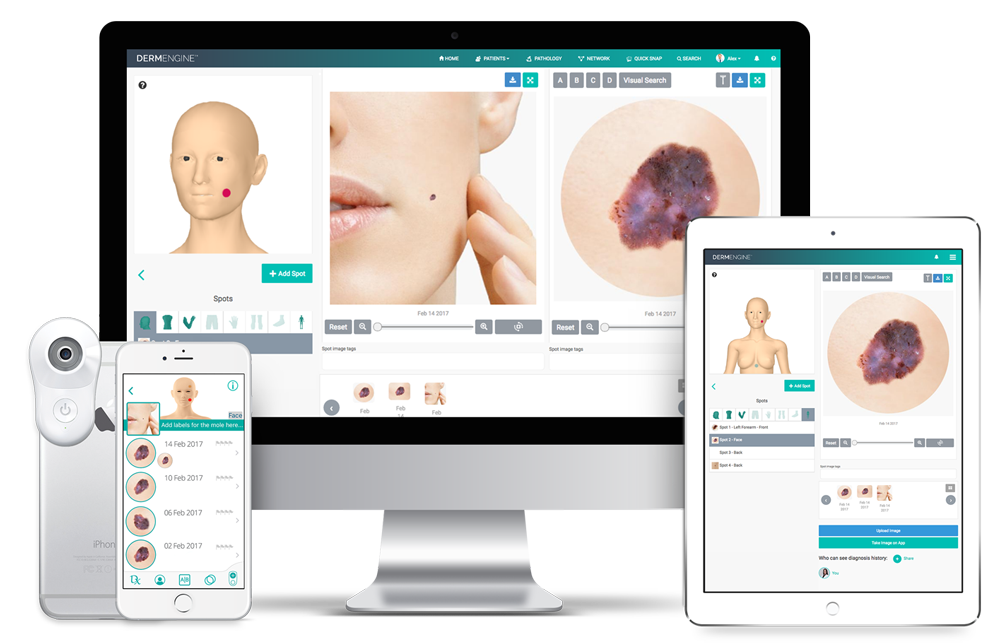In recent years artificial intelligence has drastically grown in popularity and value.1 One area that is only just beginning to experience this jump is dermatology. Recently, experts have utilized advanced artificial intelligence methods to support medical professionals in providing patient consultations. This article looks to identify the current research status of this field, its benefits, applications and potential impacts on the healthcare system.
Research StatusFirstly, it must be recognized (at this point in time) that artificial intelligence tools for advanced dermatology "...won't replace doctors soon but rather can help with diagnosis."2 Although researchers are discovering that certain intelligent healthcare analytics tools are able to identify skin cancer images as well as a dermatologist,3 it is generally agreed upon that it is too early to replace medical professionals (if at all).4 Instead, it enhances their work, making way for the potential of secure, helpful, reliable, and accurate consultations.

Artificial intelligence in dermatology offers a wide array of benefits and applications, especially for skin cancer specialists. For example, advanced dermatology software like DermEngine are utilizing advanced AI algorithms and content-based image retrieval (CBIR) to automatically identify labelled images that are visually similar to a patient’s case.
This has monumental applications in healthcare for education and clinical decision support. For example, a traditional doctor’s appointment would involve the patient visiting a clinic, having a mole checked, examining the images or referred to a specialist for feedback and then submitting a diagnosis to the patient, taking at least 6 months to a year.
In contrast, features like DermEngine’s Visual Search provides the dermatologist with clear dermoscopic images, analytics on visually similar cases, along with statistics on risk of malignancy and top diagnoses of past images. In turn, this clinical decision support tool allows skin cancer specialists to receive specialized data analytics for healthcare which can enhance their feedback (without replacing their essential role as a provider).

Additionally, medical professionals can use smart features like Visual Search as an educational resource. Experts can utilize the database of pathology-labelled images obtained from dermatologists around the world to help train or teach medical students, researchers or non-expert physicians. From this educational resource, experts can collect valuable data analytics for healthcare management, patient research, and optimized care.
ConclusionResearch demonstrates that artificial intelligence (AI) is a drastically growing market in the healthcare industry. It has a wide variety of applications in advanced dermatology, especially in the areas of education and clinical decision support. Although these intelligent healthcare analytics tools are not ready to replace dermatologists, it will nonetheless revolutionize and positively impact how data analytics for healthcare are obtained, and how medical professionals will provide care to their patients.5
-The MetaOptima Team
Would you like to experience intelligent features in your practice? sign up for a demo today!
Sources:
